Poetry
Poetry
.jpeg)
Curb
Divya Victor documents how immigrants and Americans navigate the liminal sites of everyday living: lawns, curbs, and sidewalks, undergirded by violence but also constantly repaved with new possibilities of belonging. Curb witnesses immigrant survival, familial bonds, and interracial parenting in the context of nationalist and white-supremacist violence against South Asians. The book refutes the binary of the model minority and the monstrous, dark "other" by reclaiming the throbbing, many-tongued, vermillion heart of kith.
"In poems of brilliant aesthetic diversity and haunting imagery ('Stop bath & rinse, / then hang up this feeling/ by its arms'), Curb illuminates and challenges the boundaries that divide and discipline us."—Evie Shockley, NPR
Divya Victor is the author of Kith, Natural Subjects (Winner of the Bob Kaufman Award), Unsub, and Things To Do With Your Mouth. Her work has been collected in numerous venues, including, more recently, BOMB, the New Museum's The Animated Reader, Crux: Journal of Conceptual Writing, The Best American Experimental Writing, POETRY, and boundary2. Her work has been translated into French, German, Spanish, and Czech. She teaches at Michigan State University.

My Mother: Demonology
Based loosely on the relationship between Colette Peignot and Georges Bataille, My Mother: Demonology is the powerful story of a woman's struggle with the contradictory impulses for love and solitude. At the dawn of her adult life, Laure becomes involved in a passionate and all-consuming love affair with her companion, B. But this ultimately leaves her dissatisfied, as she acknowledges her need to establish an identity independent of her relationship with him. Yearning to better understand herself, Laure embarks on a journey of self-discovery, an odyssey that takes her into the territory of her past, into memories and fantasies of childhood, into wildness and witchcraft, into a world where the power of dreams can transcend the legacies of the past and confront the dilemmas of the present. With a poet's attention to the power of language and a keen sense of the dislocation that can occur when the narrative encompasses violence and pornography, as well as the traumas of childhood memory, Kathy Acker here takes another major step toward establishing her vision of a new literary aesthetic.

Double Trio: Tej Bet, So's Notice, Nerve Church (Limited Edition Box Set)
For thirty-five years American poet Nathaniel Mackey has been writing a long poem of fugitive making like no other: two elegiac, intertwined serial poems—"Song of the Andoumboulou" and " Mu—that follow a mysterious, migrant "we" through the rhythms and currents of the world with lyrical virtuosity and impassioned expectancy. In a note to this astonishing box set of new work, Mackey writes:
"I turned sixty-five within a couple of months of beginning to write Double Trio and I was within a couple of months of turning seventy-one when I finished it.... It was a period of distress and precarity inside and outside both. During this period, a certain disposition or dispensation came upon me that I would characterize or sum up with the words all day music. It was a period during which I wanted never not to be thinking between poetry and music, poetry and the daily or the everyday, the everyday and the alter-everyday. Philosophically and technically, the work meant to be always pertaining to the relation of parts to one another and of parts to an evolving whole."
Structured in part after the last three movements of John Coltrane's Meditations — "Love," "Consequence," and "Serenity"— Double Trio stretches the explorations and improvisations of free jazz into unprecedented poetic territory.
Nathaniel Mackey was born in Miami, Florida in 1947. He is the author of several books of poetry, fiction, and criticism, and has received many awards for his work, including the National Book Award in poetry for Splay Anthem, the Stephen Henderson Award from the African American Literature and Culture Society, and the Bollingen Prize from the Beinecke Library at Yale University. Mackey is the Reynolds Price Professor of English at Duke University, and edits the literary journal Hambone.
Published April 2021.

Diagrammatic Writing
Diagrammatic Writing is a poetic demonstration of the capacity of format to produce meaning. The articulation of the codex, as a space of semantically generative relations, has rarely (if ever) been subject to so highly focused and detailed a study. The text and graphical presentation are fully integrated, co-dependent, and mutually self-reflexive.
This small book work should be of interest to writers, bibliographers, designers, conceptual artists, and anyone interested in the meta-language of diagrammatic thought in graphic form.
Special thanks to Iman Salehian for cover designs.
Thanks also to the Banff Art Centre, February 12-18, 2013.
Johanna Drucker is a writer and book artist known for her work in experimental typography. She has published and lectured widely on topics related to the history of the book, contemporary art, graphic design, and digital aesthetics. She is the Breslauer Professor of Bibliographical Studies in the Information Studies Department at the University of California, Los Angeles. Drucker wrote this text during residence at the Banff Art Centre, February 12-18, 2013.

Mamma Rassise No.3
Écrire comme être un chiton, c'est à dire de soi extraire la soie chitineuse. Les squames calcaires exsudés de son fragile : des miettes d'écailles et de spicules tapissent un devenir-mollusque. Au dedans mouolles mais affamé.es, brouteur.euses bestial.es à l'aube de grignotage ; il y a de quoi gratter !
avec les textes de Leo Go, moilesautresart, Marine Forestier, Suzette Haden Elgin, Ninoa André, Valentin Godard, Lucas Lazzarotto, GPT-3 soua la houlette de Guilluame Seyller; et les dessins de Patricia Lino Dias, Alix Penon.

Harmless Medicine
Fiercely devoted to the margins of life in the generation after the devastating first wave of the AIDS epidemic, this cathartic collection of poems explores illness, travel, contagion, the meaning of home, identity, tainted purity, and the bits of life that contain them and hold them together in spite of the harsh exigency of daily life. In more than 40 pieces, Chin fearlessly delivers everything from his first exposure to science (Magnified) to a mail order fantasy experience (I Buy Sea Monkeys); from backroads travel in Asia (Little Everest in Your Palm) to the plight of immigrants in America (The Men's Restroom at the INS Building). Chin's brutal honesty and sharp humor frame a profound and original collection.
Justin Chin is the author of two collections of poetry, Harmless Medicine and Bite Hard (Manic D Press), and two collections of essays, Burden of Ashes (Alyson Press) and Mongrel: Essays, Diatribes and Pranks (St. Martin's Press). In the 1990's, as a performance artist, he created several performance works that were presented nationally and abroad.
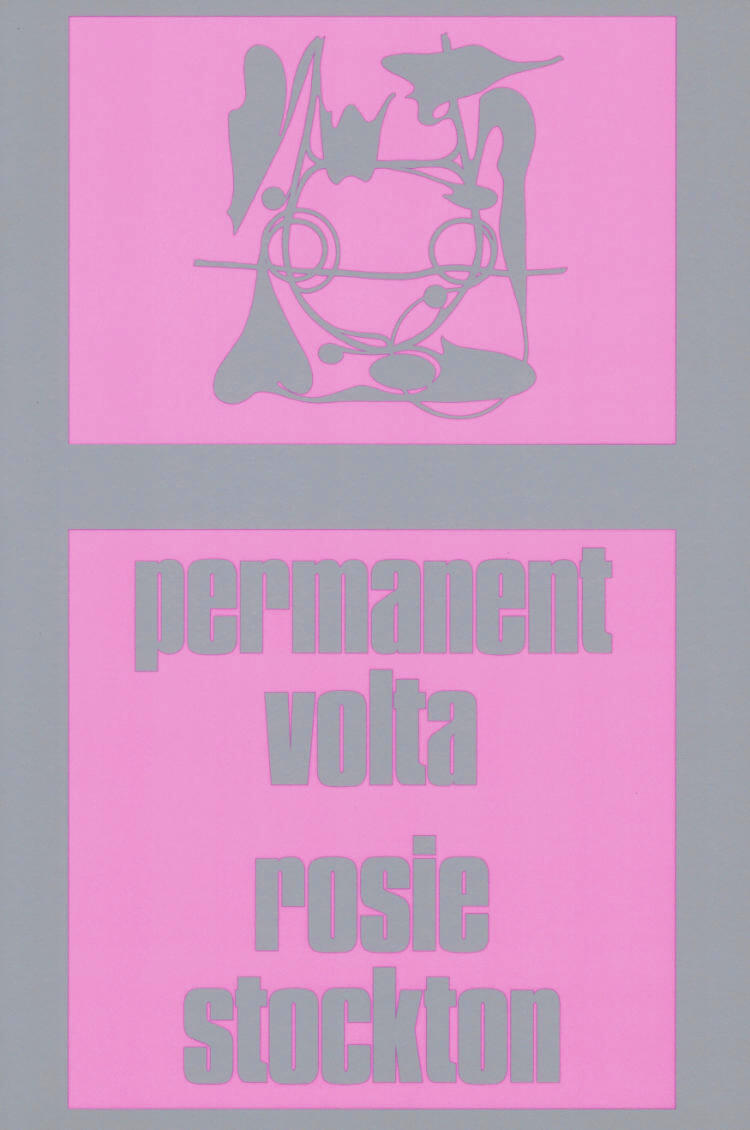
Permanent Volta
Permanent Volta is a book of poems about constraint and debt, as much as it is about excess, credit, loving luxury, and hating work. These are love poems about how queer intimacies invent political and poetic forms, how gender deviance imagines post-sovereign presents and futures.
Taking cues from Rosa Luxemburg's birdsongs and the syntax of invasive flowers, these poems strive to love lack. If history sees writers as tops and muses as bottoms, these poems are motivated by refusal, inversion, and evading representation. In Permanent Volta, the muses demand wages, and then they demand the world. Full of bad grammar, strange sonnets, and truncated sestinas, these poems are melancholy and militant, lazy and anti-state, greedy and collective.
Permanent Volta is for anyone motivated by the homoerotic and intimate etymology of comrade: one who shares the same room.
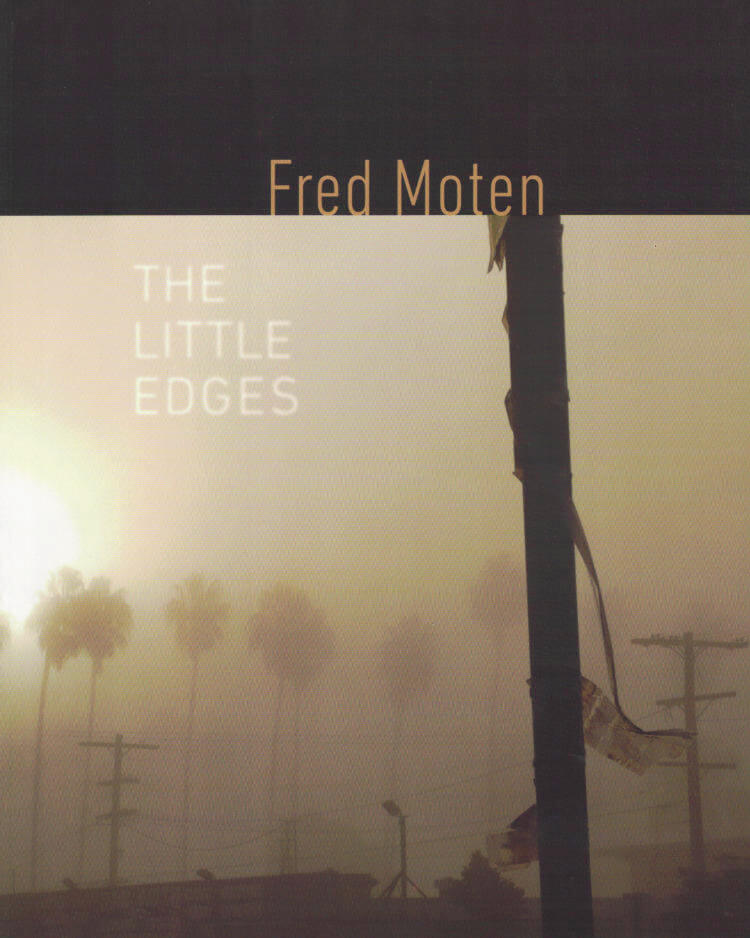
The Little Edges
The Little Edges is a collection of poems that extends poet Fred Moten's experiments in what he calls "shaped prose", a way of arranging prose in rhythmic blocks, or sometimes shards, in the interest of audio-visual patterning. Shaped prose is a form that works the "little edges" of lyric and discourse, and radiates out into the space between them. As occasional pieces, many of the poems in the book are the result of a request or commission to comment upon a work of art, or to memorialize a particular moment or person. In Moten's poems, the matter and energy of a singular event or person are transformed by their entrance into the social space that they, in turn, transform. An online reader's companion is available at http: //fredmoten.site.wesleyan.edu.

OOUU
In the art practice of Ode de Kort (1992), the elements O and U are central. The forms meet in a dialogue, from script to body and back. Even more than the letters themselves, De Kort focuses on the linguistic, (typo)graphic and performative questions they generate. This process translates into photography, installation, video, performance, text and publications.
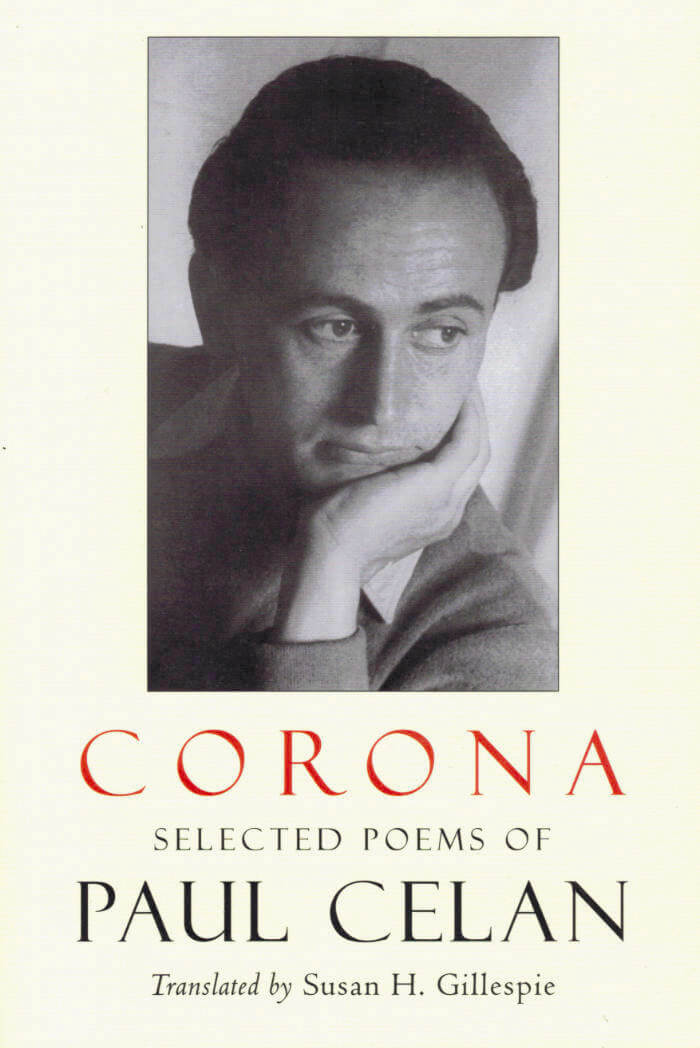
Corona
Paul Celan, arguably one of the mid-20th century's most important German-language poet, is commonly pigeonholed as a poet of the Holocaust, a term, however, he never used. Undoing facile assumptions about Celan, CORONA charts a more idiosyncratic and personal path through Celan's large oeuvre, choosing 103 poems from among the more than 900 Celan published.
The bilingual selection includes work from all of Celan's periods and genres. Without ignoring the poet's well-known work of memory and memorialization, it seeks to open a space for new appreciation of Celan's love poems, as well as his poems on political events, painful reflections on his stays in mental hospitals, and quasi-burlesque verse.
Susan H. Gillespie's translations are characterized by their ease of diction and their attention to the "somatic" and rhetorical aspects of Celan's lines, their sound, gait, tone, and gravity, as well as to their internal and external echoes. The latter, elucidated in notes to the poems, include references to other poets and to Celan's wide readings of everything from specialized dictionaries to other writers, what Roman Jakobson called their "poetic etymology." "Here, poetry is not what gets lost in translation," writes Gillespie in the Introduction, "it is, itself, an act of translation, of experience and thought, into new language."

Un Rectangle Quelconque n°5
Tomas Sidoli, Emmanuel Régniez and 1 more
Avec les poèmes et traductions de: Warsan Shire, Sika Fakambi, Anne-Claire Hello, Aurore Dal Mas, Connie Scozzaro, Chloe Chignell, Camille Fresnois, Simon Asencio, Marie De Quatrebarbes.
Aves les images de Aurore Dal Mas.
Édition: Thomas Le Goff, Emmanuel Régniez, Tomas Sidoli.
Les éditions du quelconque se divisent en deux projets, une maison d'édition (à venir) et une revue, Un Rectangle Quelconque. Cette dernière, chaque semestre, propose de découvrir des auteurs de poésie venant de tous horizons géographiques et esthétiques. La maison d'édition, elle, sera l'occasion de présenter aux lecteurs francophones des nouvelles voix de la poésie actuelle.
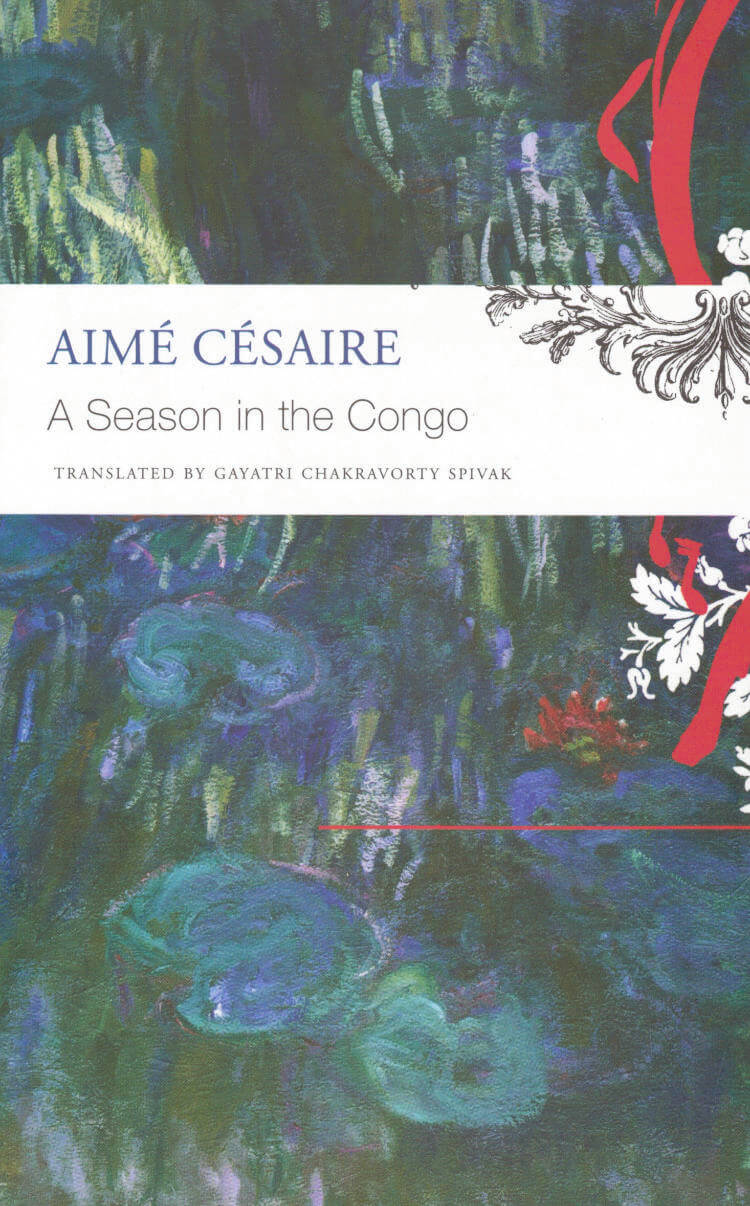
A Season in the Congo
This play by renowned poet and political activist Aime Césaire recounts the tragic death of Patrice Lumumba, the first prime minister of the Congo Republic and an African nationalist hero. A Season in the Congo follows Lumumba's efforts to free the Congolese from Belgian rule and the political struggles that led to his assassination in 1961. Césaire powerfully depicts Lumumba as a sympathetic, Christ-like figure whose conscious martyrdom reflects his self-sacrificing humanity and commitment to pan-Africanism.
Born in Martinique and educated in Paris, Césaire was a revolutionary artist and lifelong political activist, who founded the Martinique Independent Revolution Party. Césaire's ardent personal opposition to Western imperialism and racism fuels both his profound sympathy for Lumumba and the emotional strength of A Season in the Congo.
Now rendered in a lyrical translation by distinguished scholar Gayatri Chakravorty Spivak, Césaire's play will find a new audience of readers interested in world literature and the vestiges of European colonialism.

DEARS No. 2 HOPE.FULLY
Robert Steinberger, Delphine Chapuis Schmitz and 1 more
DEARS is a print magazine for transversal writing practices at the crossroads of art, poetry and experimental writing. It brings together authors and writers from different backgrounds and constitutes a dedicated platform for texts escaping the usual genres and disciplinary boundaries.
DEARS promotes the exploration of new forms of language as a way to foster new forms of living together, and emphasizes the growing relevance of trans- versal writing practices in this respect.
DEARS issue no. 2 / HOPE.FULLY / Spring 2021
With texts by Ann Cotten, Barbara Sirieix, Delphine Chapuis Schmitz, Heather Phillipson, Ines Marita Schärer, Kayije Kagame, Legion Seven, Leila Peacock, Louise Guerra Archive, Tarek Lakhrissi, and an epigraph by Rebecca Solnit
Editors are Delphine Chapuis Schmitz, Nicole Bachmann and Robert Steinberger
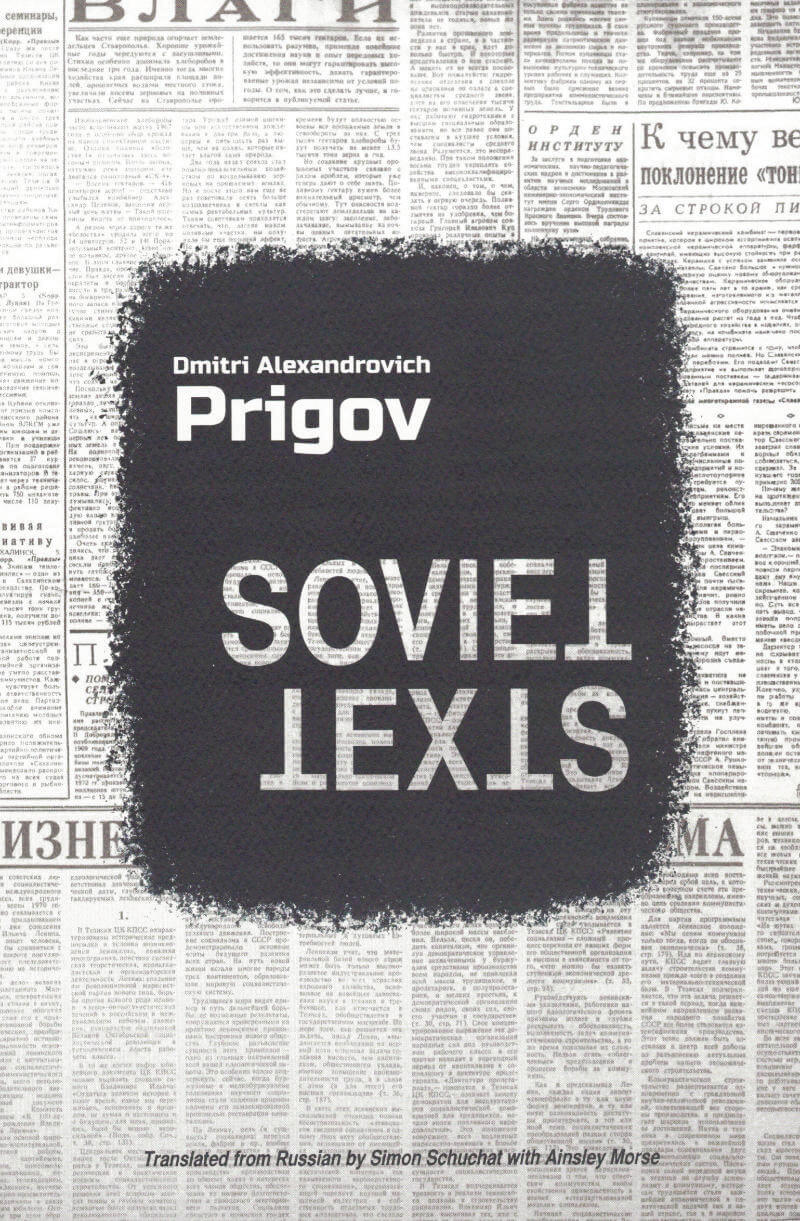
Soviet Texts
Translated by Simon Schuchat and Ainsley Morse. With nearly 300 pages of prose and poetry, SOVIET TEXTS is the first representative selected volume of Prigov's poetry and experimental prose texts to appear in English. It includes short stories about amazing heroes of the revolution and after, and poetic sequences that expose literature, history, and culture to the stark light of a post-modern Gogolian laughter, some of which became cult-classics for his generation—such as the cycle "Image of Reagan in Soviet Literature." A selection of post-Soviet writings, concerned with human mortality and human sinfulness, is also included. While Prigov's writing is very definitely of the Soviet and post-Soviet world, it is consonant with contemporaneous avant-garde writing elsewhere.
Dmitri Alexandrovich Prigov (1940-2007) was a leading writer of the late Soviet and early post-Soviet era. Almost until the collapse of the Soviet Union, his writing circulated solely in unofficial samizdat editions and overseas publications. He was briefly detained in a Soviet psychiatric hospital in 1986 but released after protests from establishment literary figures. A founder of Moscow Conceptualism, Prigov was a prolific writer, in all genres, as well as an accomplished visual artist. Described by some critics as Russia's ultimate post-modern trickster, Prigov mastered many personas all of which come together in what is finally an enigmatic, Warhol-esque artistic mask. Indeed, during the late Soviet period he mounted a critique of ideological culture in a similar manner to western Pop Art's engagement with consumer culture. His performative work lay the seeds for much contemporary Russian socially-engaged art, and Prigov directly encouraged and inspired the next generation of conceptual dissident artists, such as the well-known Voina (War) group and, later, Pussy Riot, who dedicated their intervention at the 2018 World Cup in Moscow to Prigov's memory. Prigov died in Moscow in 2007, at the age of 66; a lifespan longer than average for a Russian male of his generation. En route to a performance with the Voina group—for which he planned to read poems inside a wardrobe while being carried up the stairs of Moscow University—he collapsed in the subway after a heart attack.

Mucus in my Pineal Gland
A 180+ page collection of poems and writings by artist and performer Juliana Huxtable. Co-published by Wonder.
Juliana Huxtable is a New York City-based writer, performer, and artist. Her work has been featured in numerous publications, including Artforum, Candy, Tropical Cream, and Mousse. She was included in the 2015 New Museum Triennial, curated by Ryan Trecartin and Lauren Cornell.

Say Bye to Reason and Hi to Everything
Dodie Bellamy, Lynne Tillman and 3 more
Say Bye to Reason and Hi to Everything is a collection of chapbooks by Dodie Bellamy, Cecilia Corrigan (with illustrations by Jocelyn Spaar), Amy De’Ath, Lynne Tillman, and Jackie Wang. Each chapbook is uniquely designed with an accompanying cover by artist Nayland Blake and features new or previously uncollected works by each writer. The collection is edited by Andrew Durbin.
This box set features the following titles:
Dodie Bellamy, More Important than the Object. Cecilia Corrigan, Cream. Amy De’Ath, ON MY LOVE FOR gender abolition. Lynne Tillman, In These Intemperate Times: 9 Frieze Columns. Jackie Wang, Tiny Spelunker of the Oneiro-Womb
Dodie Bellamy is an American novelist, nonfiction author, journalist and editor who writes genre-bending works that focus on sexuality, politics, and narrative experimentation, challenging the distinctions between fiction, essay, and poetry. Her methods include radical feminist revisions of canonical works. Bellamy is one of the originators in the New Narrative literary movement of the early and mid 1980s, which attempts to use the tools of experimental fiction and critical theory and apply them to narrative storytelling. Bellamy also directed the San Francisco writing lab, Small Press Traffic. She teaches creative writing at San Francisco State University and California College of the Arts.
Cecilia Corrigan is a writer and performer. She recently starred in the short film Crush, which she co-wrote with director Katherine Bernard, now streaming at Dazed Magazine. She was recently selected as one of Issue Project Room’s Artists in Residence for 2016-17. Her first full-length book, Titanic, won the Plonsker Prize and the chapbook True Beige, (Trafficker Press). She is completing her PhD in Comparative Literature at NYU, writing about social media, makeup, and comedy. Her fiction and essays have been published many places including n+1, Joyland, and Nerve.
Amy De’Ath’s poetry chapbooks include Lower Parallel (Barque 2014), Caribou (Bad Press 2011), and Erec & Enide (Salt 2010). With Fred Wah, she is the editor of a poetics anthology, Toward. Some. Air. (Banff Centre Press 2015). Her criticism has appeared in Women: A Cultural Review, Anguish Language (Archive Books 2015), and Cambridge Literary Review, and is forthcoming in After Objectvism: Reconfiguring 21st-Century Poetry and Poetics (U of Iowa P 2017). She is a PhD Candidate at Simon Fraser University and lives in Vancouver, on unceded Coast Salish Territories.
Lynne Tillman is a novelist, short story writer and critic. Her most recent collection of essaysWhat Would Lynne Tillman Do? was a finalist for the National Book Critics Circle Award in Criticism (2014). Her most recent novel is American Genius, A Comedy (2006), on The Millions’ list of Best Novels So Far in the Millennium. Tillman writes frequently for artists books and catalogues, and has a bimonthly column in Frieze art magazine. In fall 2016, Semiotext(e) will publish hernew collection of fiction, The Complete Madame Realism and Other Stories. She is currently finishing a novel, Men and Apparitions, due to be pubbed in 2017.
Jackie Wang is a writer, poet, musician, and author of Against Innocence (Semiotext(e)), as well as the zines On Being Hard Femme, Memoirs of a Queer Hapa, The Adventures of Loneberry, and The Phallic Titty Manifesto. In her critical essays she writes about queer sexuality, race, gender, the politics of writing, mixed-race identity, prisons and police, the politics of safety and innocence, and revolutionary struggles. Her blog, Ballerinas Dance with Machine Guns, reads like a journal that explores writing as process, the personal as political.
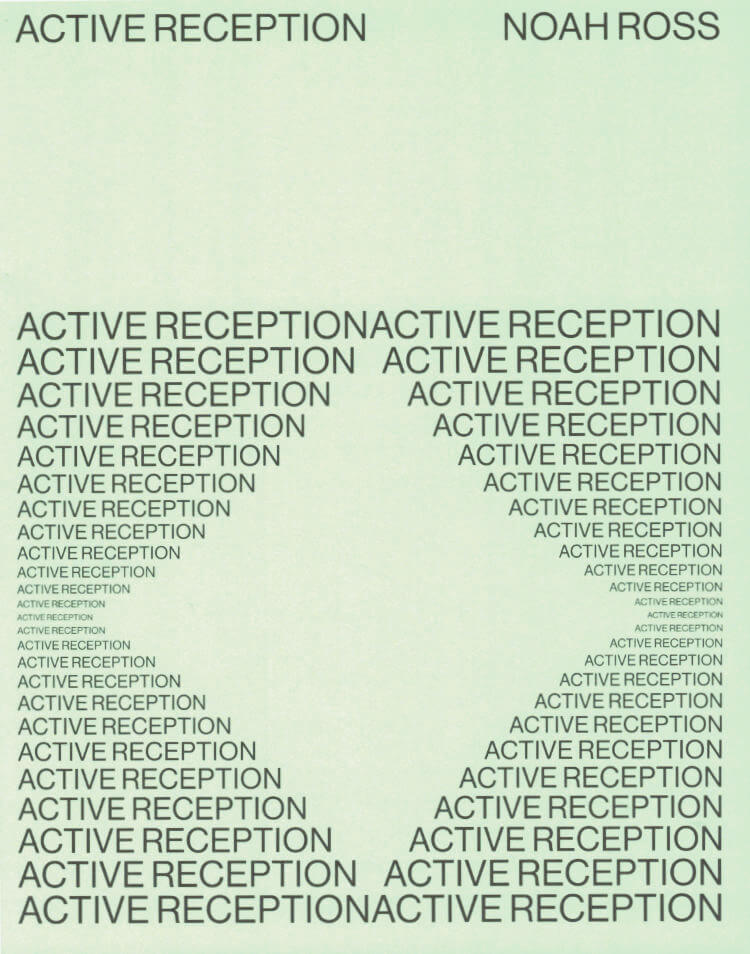
Active Reception
A vibrant work of lyric, conceptual, and confessional poetic modes pitched to enact a queer politics of liberation.
Active Reception is a book of bottoming lovers, the world around us, and a history of letters, that thinks through a queer mode of writing from the bottom, a kind of coalition based politics of receptivity and expansion that is open to the world around us, its myriad life forms, its systemic oppressions, its hidden ghosts.
Noah Ross is a bookseller, editor, and poet based in Berkeley, CA. Noah is the author of Swell, and an editor of Baest: a journal of queer forms & affects, and Mo0on/IO with Lindsay Choi.

Ich Bin Sandra: Nine Poems
With contributions by Bogdan Ablozhnyy, John Flindt, Graham Hamilton, Karl Holmqvist, Lin Jing, David Moser, Dudu Quintanilha, Ian Waelder and Vera Varlamova.
Published on the occasion of the workshop #THEREISNOAUDIENCE... held by Karl Holmqvist on Friday November 15th, 2019 at Städelschule, Frankfurt am Main.
Participants in the workshop #THEREISNOAUDIENCE... started with some basic voice exercises chanting out all vowels together as a group (including the Sweedish Å Ä Ö). They were then asked to write down two random sentences each that were compiled to a list and then read out loud before finally being used in the nine poems by each individual participant. In the meantime there were some discussing around what it takes exactly to be performing in front of others, differences between the spoken and the writen and the role of language and writing in visual arts.
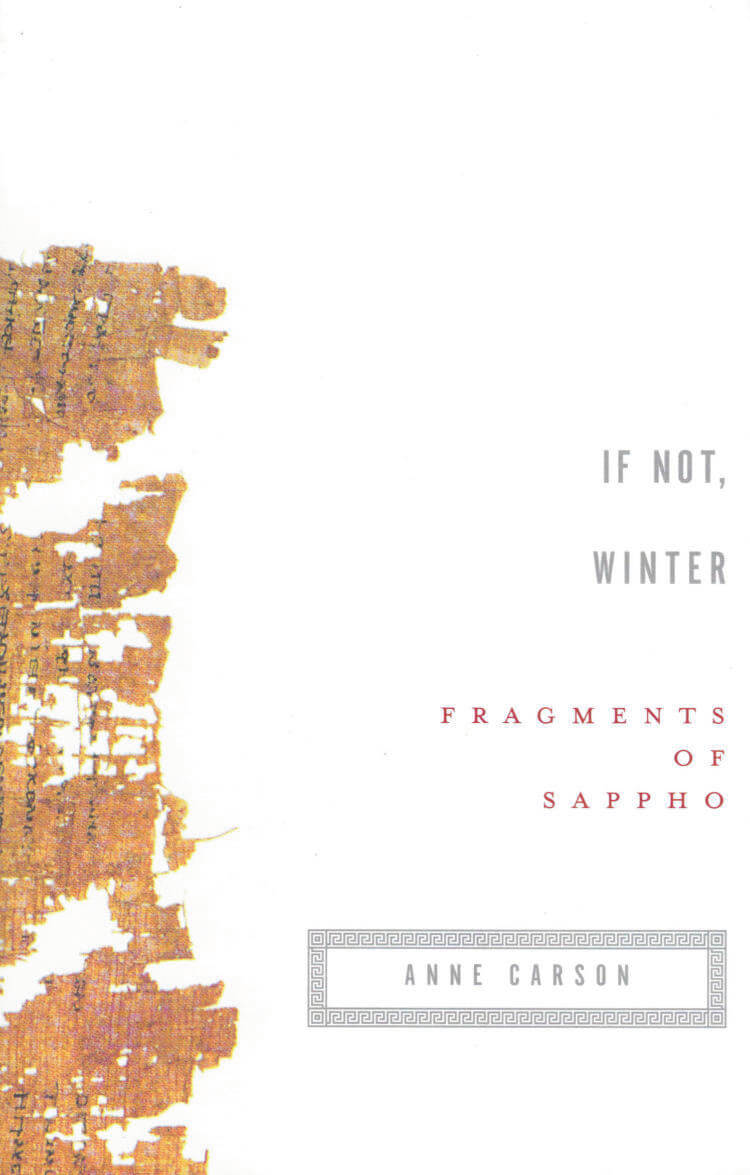
If Not, Winter
Of the nine books of lyrics the ancient Greek poet Sappho is said to have composed, only one poem has survived complete. The rest are fragments. In this miraculous new translation, acclaimed poet and classicist Anne Carson presents all of Sappho's fragments, in Greek and in English, as if on the ragged scraps of papyrus that preserve them, inviting a thrill of discovery and conjecture that can be described only as electric, or, to use Sappho's words, as "thin fire . . . racing under skin."
By combining the ancient mysteries of Sappho with the contemporary wizardry of one of our most fearless and original poets, If Not, Winter provides a tantalizing window onto the genius of a woman whose lyric power spans millennia.

How To Wash A Heart
How To Wash A Heart, Kapil's first full-length collection published in the U.K., depicts the complex relations that emerge between an immigrant guest and a citizen host. Drawn from a first performance at the ICA in London in 2019, and using poetry as a mode of interrogation that is both rigorous, compassionate, surreal, comic, painful and tender, by turn, Kapil begins to ask difficult and urgent questions about the limits of inclusion, hospitality and care.
Winner of the T.S. Eliot Prize 2020.
Poetry Book Society Choice for Summer 2020.

Undersong
'Undersong is a remarkable poetic document. It comprises a thoroughgoing revision of Lorde's early poems, 1950-1979, along with nine hitherto unpublished poems from that period, and an essay describing the revision process. Readers new to Lorde's work will meet here a major American poet whose concerns are international, and whose words have left their mark on many lives. Readers of "The Black Unicorn", "Sister Outsider", "The Cancer Journals", "A Burst of Light", and "Our Dead Behind Us", and the thousands who have attended her poetry readings and speeches, will recognize in this book the roots and the growing-points of a transformative writer. Never has a poet left so clear and conscious a track of artistic choices made in the trajectory of a life. Far from rewriting old poems to fit a changes historical moment, she has finely rehoned formal elements to illuminate the original poems. Throughout, Lorde's lifelong themes of love and anger, family politics, sexuality, and the body of the city can be seen gathering in power and clarity.' - Adrienne Rich
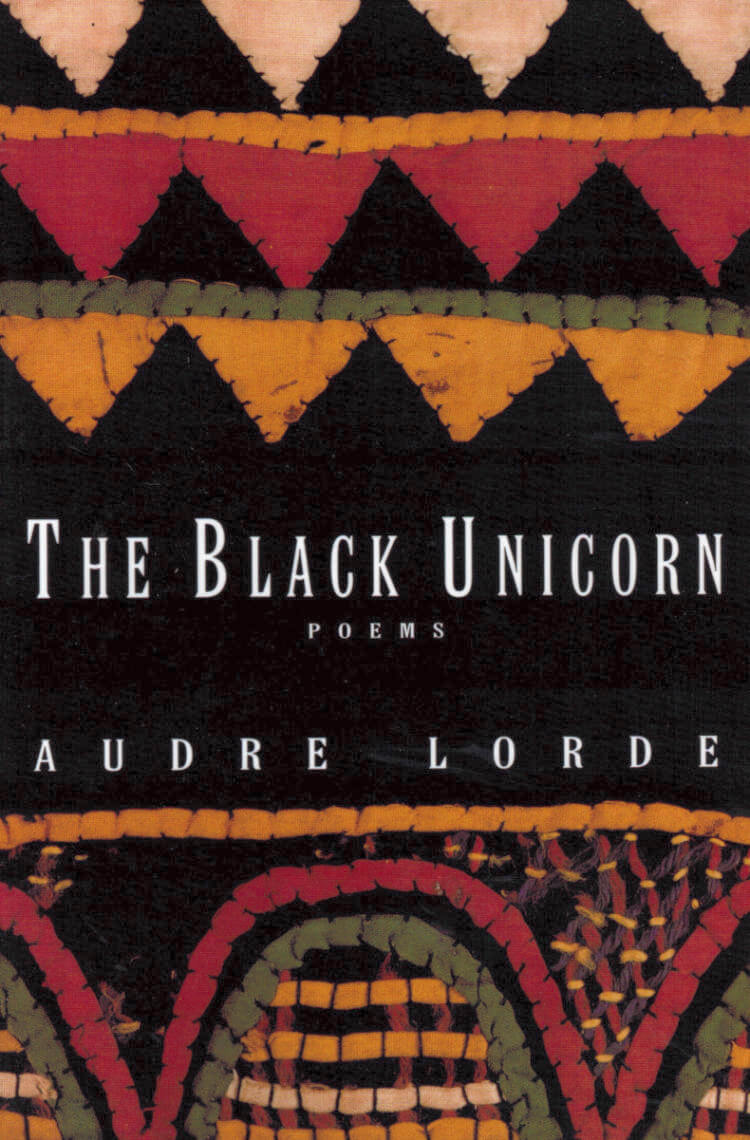
The Black Unicorn
The Black Unicorn is a collection of poems by a woman who, Adrienne Rich writes, "for the complexity of her vision, for her moral courage and the catalytic passion of her language, has already become, for many, an indispensable poet."
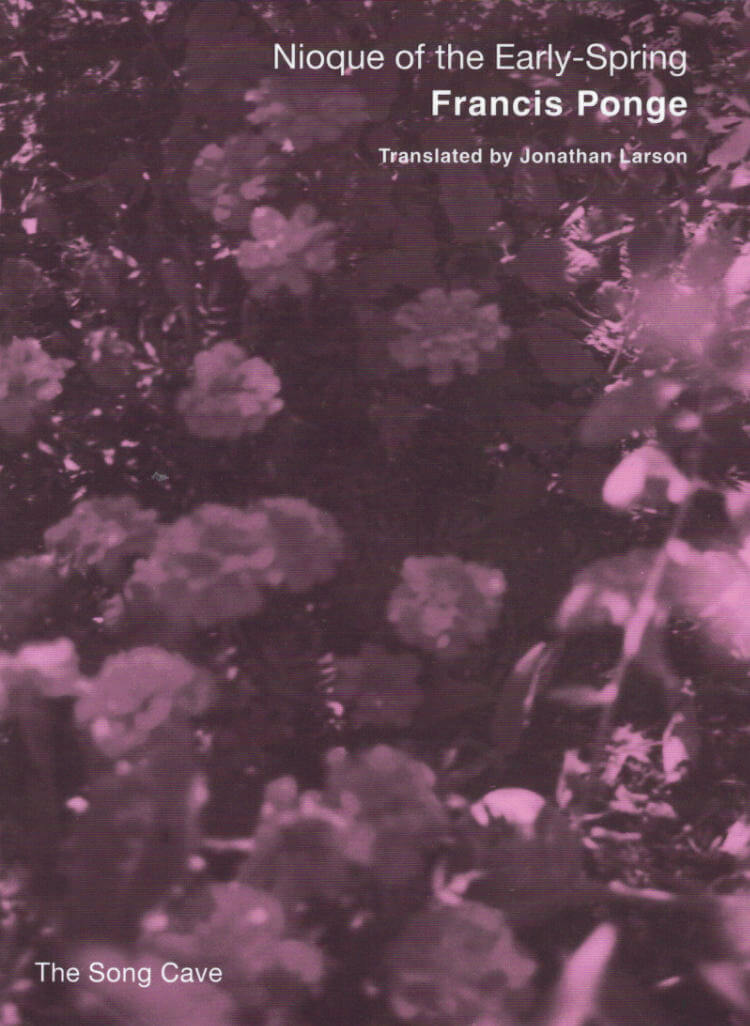
Nioque of the Early-Spring
Translated from the French by Jonathan Larson.
On the 50th anniversary of its publication, The Song Cave presents the first English translation of Francis Ponge's NIOQUE OF THE EARLY-SPRING. Ostensibly a book written to honor the season itself and the cycle of time, upon its first publication in Paris, May 1968, these notes took on a greater metaphorical meaning within this context, addressing the need for new beginnings and revolution.
April is not always the cruelest month. In these stray notations dated early April 1950, Ponge provides a latter-day version of Stravinsky's 'Sacre du printemps' or of William Carlos Williams' 'Spring and All', a vernal enactment of all the resurrectional energies of a spring-time-to-come, as witnessed firsthand at the farmhouse of 'La Fleurie' in southern France. When subsequently published in Tel Que in May 1968, eighteen years later, Ponge's rural, pastoral text now acquired a specific urban history and Utopianism, its Lucretian 'Nioque, ' or gnosis, now speaking to the gnomic revolutionary slogans of the Left Bank barricades: 'Be realistic, demand the impossible, ' 'Beneath the cobblestones, the beach.' Jonathan Larson's careful engagement with Ponge manages to seize what is most prosaic about his poetry—its fierce communism of the ordinary, its insistence that taking the part of things means taking words at their most etymological everydayness. - Richard Sieburth
This startlingly fresh and necessary document of the 1950s by Francis Ponge comes to us via the all too rare feat of true poetic reenactment. Understanding that each poet creates language anew, Jonathan Larson has found a poetics suitable for the occasion of Ponge's own poetic logic In this rendering, Larson's absolute care and attention to syllabic weight and measure, to the syntax and length of each line as it unwinds, allows us—as readers—to come into the drama of a text newly made, in other words, to discover a new poem in its very making. Yet, none of this comes at the cost of accuracy or through the subjugation of the original at the hands of one wielding the imperial language This is no mean feat in this day and age and, by way of Larson's exquisite ear, we are again given the poignancy and urgency of Ponge's own moment. - Ammiel Alcalay
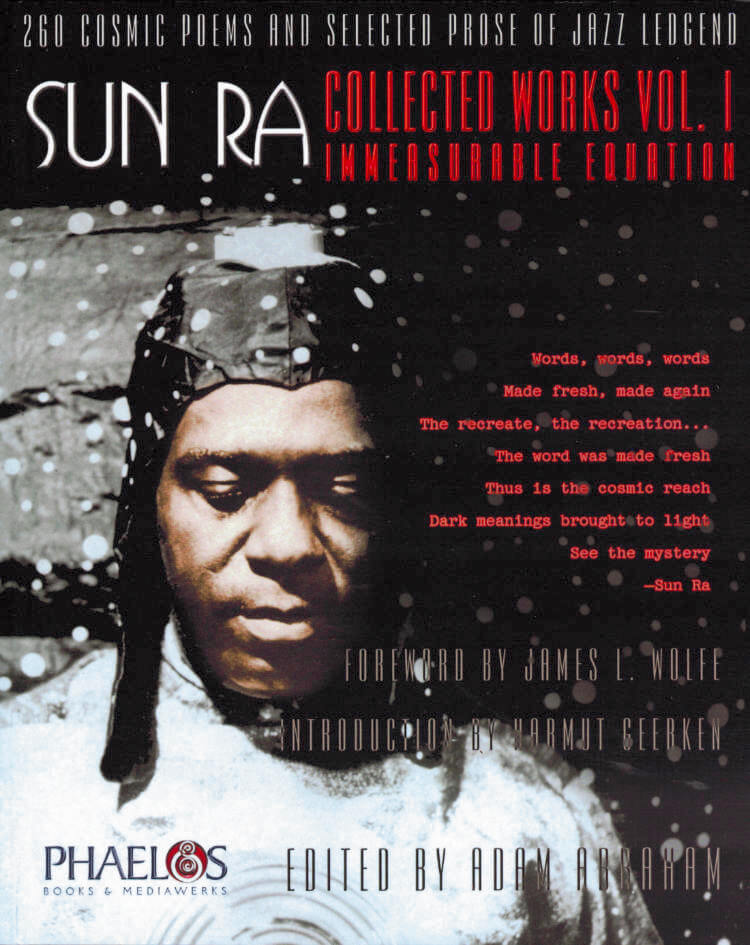
Immeasurable Equation
A stunning collection of 260 of Sun Ra's cosmic poems and selected prose.
Sun Ra's poetry leaves everything behind what's called contemporary, and flings out pictures of infinity into the outer space. These poems are for tomorrow.